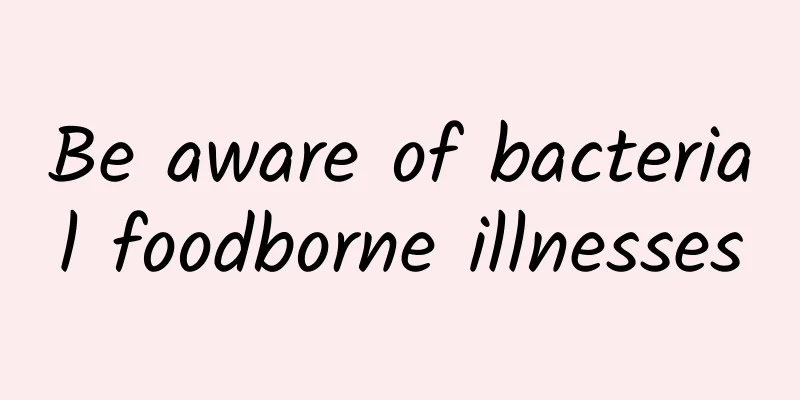Be aware of bacterial foodborne illnesses

|
As the temperature rises, various pathogenic microorganisms grow and reproduce rapidly, and bacterial foodborne diseases enter a high incidence and susceptibility period. Bacterial foodborne diseases are prone to occur. Today, let’s learn how to prevent bacterial foodborne diseases. Keep food clean; separate raw and cooked food; cook thoroughly; store safely; ensure the safety of ingredients. Store food in the water tank in time, and overnight food must be re-cooked before consumption. When purchasing prepared food, you must go to a supermarket or retail store with legal qualifications and refrigeration facilities. Observe its color and smell when purchasing, and try to buy less homemade cooked food, cold dishes, soy products, raw seafood, etc. sold by roadside vendors. Aquatic products must be cooked before eating, and when steaming, they must be heated to 100 degrees Celsius for more than 10 minutes. Aquatic products should not be left for more than 2 hours from cooking to eating. Do not eat dead aquatic products, including shellfish, crabs, turtles, eels and some freshwater fish. When storing in the refrigerator, pay attention to the following: First, keep it dry. If the temperature in the freezer changes repeatedly, some foods may turn white and dry. They should be fully sealed before freezing. Second, pay attention to the color. Pay attention to the color of the frozen food. If it is not the original color, it may be dry or oil oxidation may occur. Third, ensure the quality. If the frozen food becomes too frosted like snow, the quality of the food may change. The key to preventing bacterial foodborne diseases is to strictly control the "entry gate" and adhere to the "four no-eats": do not eat rotten or spoiled food; do not eat overnight meals and leftovers that have gone bad; do not eat food that has been left in the refrigerator for too long; do not eat inferior cooked food, especially meat products with a bright red appearance. |
<<: Are there any healthy snacks that won’t make you fat? The truth →
>>: To prevent diseases in summer, remember these five tips!
Recommend
What is the best age for women to have their first menstruation?
Menarche is the first time a woman's endometr...
Is it normal for my period to be bright red?
Menstruation is no stranger to women. Usually, fe...
Can I breastfeed if I have a fever due to mastitis?
Generally, mastitis often occurs during breastfee...
Kidney Health Notes (IV) | How to diagnose and treat glomerulonephritis in children? Just look at these 6 points!
Glomerulonephritis (GN) is one of the common glom...
Diabetes at a young age is caused by these lifestyle habits! Be careful at all ages
Four reasons why blood sugar levels rise Young pe...
When is the earliest time to detect pregnancy?
How many days in the first trimester can pregnanc...
Cervical erosion and cervical hypertrophy, dietary therapy is recommended
Cervical hypertrophy and cervical erosion are bot...
What can women eat to speed up their metabolism?
You certainly don't know what women can eat t...
Is it normal to bleed the next day after taking the medicine?
You may find that your lower body continues to bl...
Why do daffodils have root rot? What should I do if the daffodils rot?
As people's quality of life improves, more an...
What is cervical hyperplasia?
Cervical hyperplasia is a relatively common gynec...
What is the hcg value for ectopic pregnancy
HCG (human chorionic gonadotropin) is the "p...
Yaowa Quiz | Is oral rehydration salt the first choice for treating mild to moderate dehydration?
Diarrhea is a digestive tract syndrome caused by ...
Menstruation is not clean and it is always light blood
The menstrual period usually lasts 3-7 days. If t...
How to tighten vagina
The biggest secret of a woman's body is her p...









